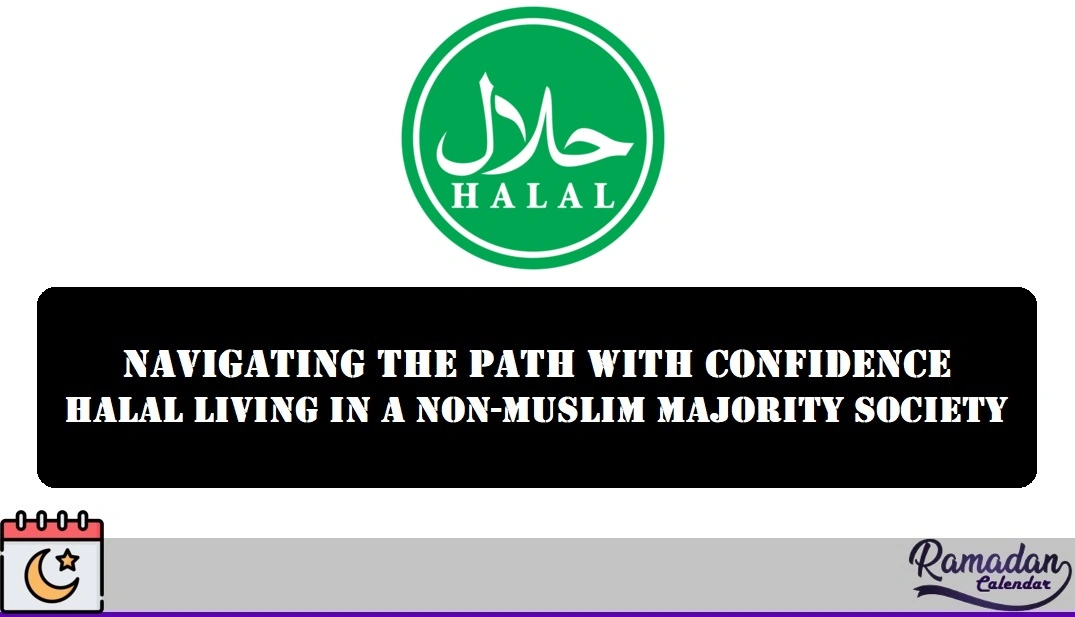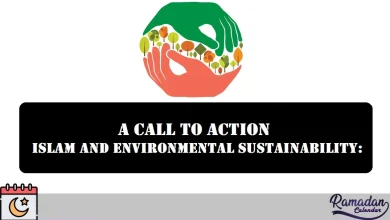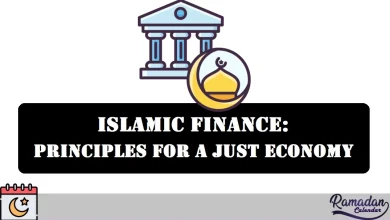Halal Living in a Non-Muslim Majority Society
Halal Living in a Non-Muslim Majority Society [Guide]

Halal Living in a Non-Muslim Majority Society: Navigating the Path with Confidence: Living in a non-Muslim majority society presents unique challenges for Muslims who strive to adhere to a halal lifestyle. The term “halal” extends beyond dietary laws, encompassing all aspects of life, including ethical practices, financial transactions, and personal conduct. It is a way of living that aligns with Islamic principles, fostering spiritual and moral well-being. While the environment may seem daunting, it is entirely possible to live a fulfilling halal life by embracing knowledge, community support, and intentional decision-making.
Understanding Halal in Its Full Spectrum
To live halal in a non-Muslim majority society, one must first have a comprehensive understanding of what halal entails. While it is often associated with permissible food and drink, the concept is much broader. Halal encompasses ethical behavior, such as honesty, kindness, and integrity, and financial dealings, including avoiding interest (riba) and investing in socially responsible ventures. Understanding the depth and breadth of halal living is the cornerstone for navigating life in a society where Islamic principles may not be the norm.
The Food Dilemma: Navigating Dietary Restrictions
One of the most visible aspects of halal living is dietary adherence. In a non-Muslim majority society, finding halal food options can be challenging but not impossible. Many cities now have halal-certified restaurants, grocery stores, and butchers. For those in areas with limited options, reading ingredient labels, researching restaurant menus, and seeking out online halal food suppliers can make a significant difference.
Social gatherings can also pose a challenge. Politely explaining your dietary restrictions and offering to bring a dish to share can help navigate these situations gracefully. Building relationships with local Muslim communities can also provide access to shared resources and recommendations for halal food options.
Lessons from Surah Al-Kahf: Stories of Guidance and Patience
Maintaining Ethical and Financial Integrity
Halal living extends to how one earns, saves, and spends money. For Muslims in non-Muslim majority societies, avoiding interest-based financial systems can be challenging. However, the growth of Islamic finance options has provided alternatives. From halal investment funds to Sharia-compliant mortgages, there are ways to ensure that financial dealings align with Islamic principles.
Beyond finances, ethical behavior is a hallmark of halal living. This means treating others with respect, fulfilling commitments, and upholding honesty in all dealings. These values not only strengthen one’s faith but also build trust and respect within the broader community.
The Importance of Community Support
Isolation can be a significant barrier to maintaining a halal lifestyle, but building connections within the Muslim community can provide the support and resources needed to thrive. Many cities have mosques, Islamic centers, and community organizations that offer educational programs, social events, and spiritual guidance. Engaging with these institutions can help reinforce one’s faith and provide a sense of belonging.
For those who live far from established Muslim communities, online platforms can serve as valuable resources. From halal food directories to virtual Quran study groups, the internet has made it easier than ever to access support and information.
Educating and Engaging with the Wider Community
Living halal in a non-Muslim society also presents an opportunity to educate and engage with others. Many people are curious about Islamic practices and values, and sharing your experiences can foster understanding and respect. Simple acts, such as explaining the significance of halal dietary laws or the reasons for avoiding interest-based transactions, can break down misconceptions and build bridges between communities.
Engagement goes both ways. Understanding the cultural and social norms of the society you live in can help you navigate life more effectively while maintaining your values. Mutual respect and open communication are key to building harmonious relationships.
Finding Balance in a Multicultural World
Balancing religious obligations with the realities of a non-Muslim majority society requires flexibility and adaptability. It is important to prioritize the core tenets of halal living while recognizing that perfection is not always attainable. Islam emphasizes intention and effort, and striving to live a halal life is a journey rather than a destination.
Prayer and reflection can provide strength and guidance. Regularly seeking knowledge about Islamic teachings and applying them to your daily life can help reinforce your commitment. Surrounding yourself with like-minded individuals who share your values can also provide encouragement and inspiration.
Thriving, Not Just Surviving
Halal living in a non-Muslim majority society is not just about adhering to rules; it is about thriving spiritually, morally, and socially. By embracing your faith with confidence and sincerity, you can live a life that is not only true to your beliefs but also enriching and fulfilling. Your commitment to halal principles can serve as a source of inspiration and a testament to the universality of Islamic values.
Ultimately, halal living is a testament to faith, resilience, and the ability to find harmony in diversity. With the right mindset and resources, you can navigate the challenges and opportunities of a non-Muslim majority society while staying true to your principles. In doing so, you contribute to a more inclusive and understanding world, one interaction at a time.





